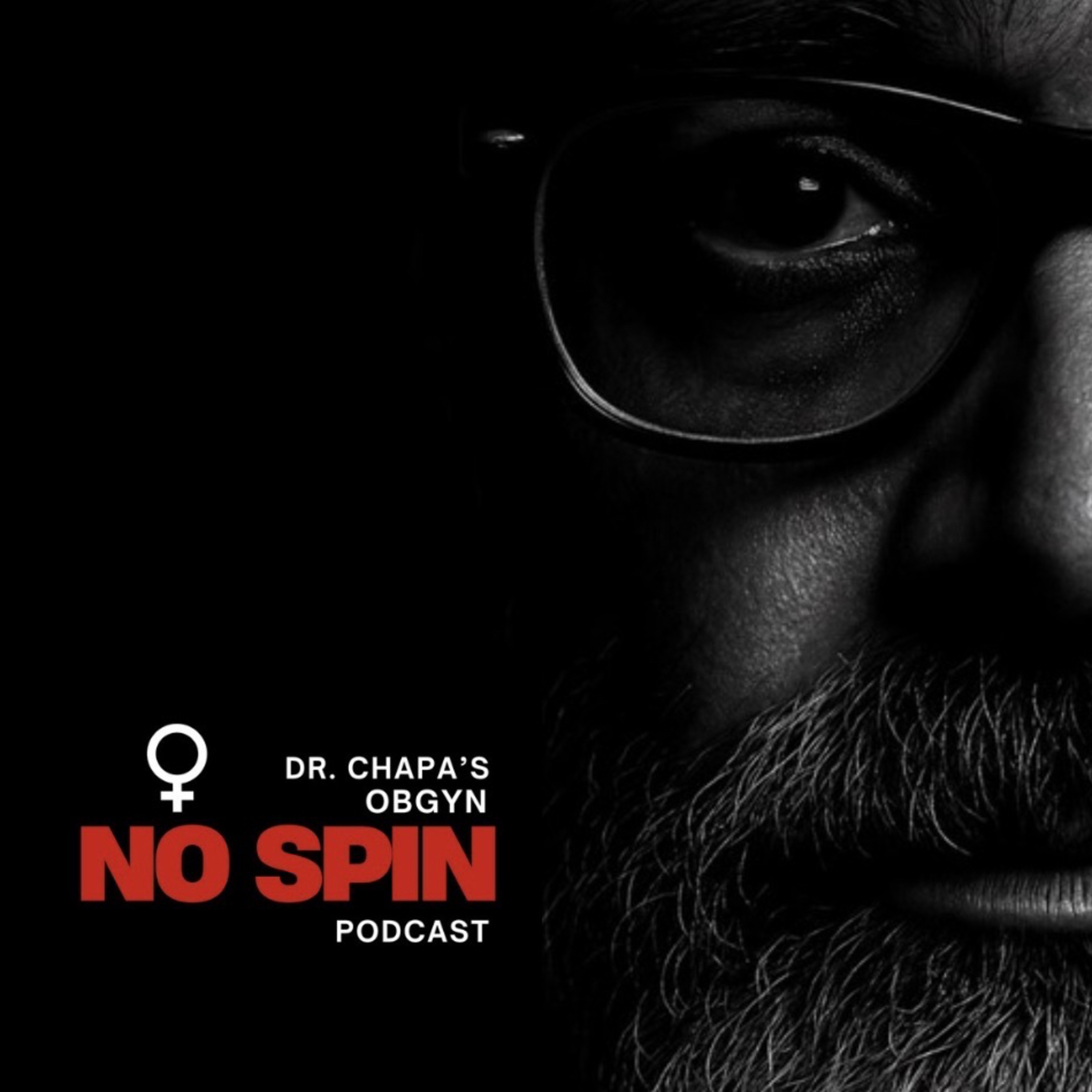

Dr. Chapa’s OBGYN Clinical Pearls
Dr. Chapa’s Clinical Pearls
Relevant, evidence based, and practical information for medical students, residents, and practicing healthcare providers regarding all things women’s healthcare! This podcast is intended to be clinically relevant, engaging, and FUN, because medical education should NOT be boring! Welcome...to Clinical Pearls.
Episodes
Mentioned books

Feb 24, 2024 • 36min
Stage 1 HTN in OB
Delving into the world of hypertension disorders in pregnancy, the podcast covers the latest AHA/ACC recommendations for managing Stage 1 hypertension in pregnancy. They discuss the necessity of medication, antepartum fetal surveillance, and the risks pregnant patients face. Exploring the role of biomarkers, aspirin usage for preventing preeclampsia, and trials testing aspirin effectiveness in high-risk pregnant women. The podcast also touches on the challenges of managing hypertension during pregnancy and the potential impact of biomarkers on patient outcomes.

10 snips
Feb 23, 2024 • 45min
New Developments in HG 🤢🤮🤢
Exploring new developments in Hyperemesis Gravidarum (HG), including the discovery of 2 protein markers and the potential for a genetic test. The podcast also covers advancements in understanding the condition, electrolyte management, and various treatment options, highlighting the complexities and importance of accurate diagnosis and treatment.

12 snips
Feb 20, 2024 • 47min
Fetal Manual Rotation: 1st or 2nd Stage Practice?
Exploring the timing for manual rotation of occiput posterior fetuses in labor, with insights from recent data on optimal positions for descent. Debate on whole hand vs. digital rotation, historical context, cardinal movements in labor, and study findings on fetal head rotation during spontaneous labor.

Feb 17, 2024 • 40min
“Formula” to Predict SD?
Exploring the challenges of predicting shoulder dystocia using mathematical formulas based on ultrasound and anthropometric factors. Discussing the complexities of medical litigation and malpractice, as well as the limitations of current predictive models. Highlighting the historical studies and recent reviews that emphasize the limited positive predictive value of anthropometric measurements in pregnancies with diabetes.

Feb 15, 2024 • 42min
GDM “Screen” in 3rd Trimester?
The podcast explores the controversy surrounding screening for gestational diabetes in the third trimester, discussing guidelines and impact on perinatal outcomes. It highlights the challenges and lack of specific reference values for GDM screening in the later stages of pregnancy. The association between shoulder dystocia and GDM is discussed, as well as the impact of late GDM diagnosis on cesarean section rates. Two publications suggest that diagnosing GDM in the third trimester does not lead to significant changes in outcomes.

Feb 14, 2024 • 40min
Phthalates and PTB: “New Data”
A recent study reveals the connection between phthalate exposure and increased risk of preterm births. Although the data is not new, it serves as a reminder to reduce our exposure to dangerous substances. The podcast explores the association between phthalates and preterm birth, discusses practical tips to minimize exposure, and provides recommendations to avoid harmful chemicals in everyday life.

Feb 11, 2024 • 21min
Another Nail in the Coffin for Late PT Steroids: New RCT Data
In this podcast, they discuss new research challenging the use of late preterm steroids for reducing neonatal respiratory complications. They highlight concerns about the long-term effects on the developing brain. A study found no significant difference between the steroid and placebo groups in reducing the need for treatment of neonatal respiratory distress. They conclude that late preterm steroids do not provide measurable benefit.

Feb 8, 2024 • 28min
New Data on Naltrexone in Pregnancy
We are still in an opioid crisis. The number of women with opioid-related diagnoses at delivery has increased by 131% over the last several years (CDC, Data and Statistics, 2023). The ACOG has recommended the use of opioid agonist pharmacotherapy for MOUD during pregnancy. Traditionally, medically supervised withdrawal has not been endorsed for pregnancy. However, some patients may elect to discontinue opioid therapy in favor of an opioid antagonist like naltrexone. In this episode, we will review a new systematic review just released ahead-of-print in Obstetrics and Gynecology. This systematic review evaluates OB and neonatal outcomes following naltrexone use during pregnancy. And listen in until the END of the episode for one of the “issues” with naltrexone as a MOUD option.

Feb 7, 2024 • 52min
TOKOPHOBIA: Pregnant & Petrified
It is completely natural, and part of the human experience, to have some anticipatory concern about an upcoming delivery/childbirth. However, when that concern becomes overwhelming, it can develop into a debilitating phobia called Tokophobia. First coined as a term in 2000, there’s been growing awareness of this specific type of anxiety disorder/phobia. Even though it was first described in 2000, this extreme fear of pregnancy and childbirth has, of course, been part of the human experience For centuries. This is now considered a sub-type of PTSD when it happens after a traumatic childbirth experience. The idea for this episode originated from a real patient encounter that one of our residents had just yesterday. Have you heard of Toca phobia? How prevalent is it? And what are the “4 Rs” of trauma informed care? Will cover this, and more, in this episode.

9 snips
Feb 5, 2024 • 50min
The OB Steroid WARNING FLAGS: When CONS>PROS
Exploring the controversies surrounding the use of antenatal corticosteroids in pregnancy, focusing on the late preterm interval. Discussing the potential risks and benefits of steroid exposure in utero, as well as the long-term effects on fetal brain and body development.


